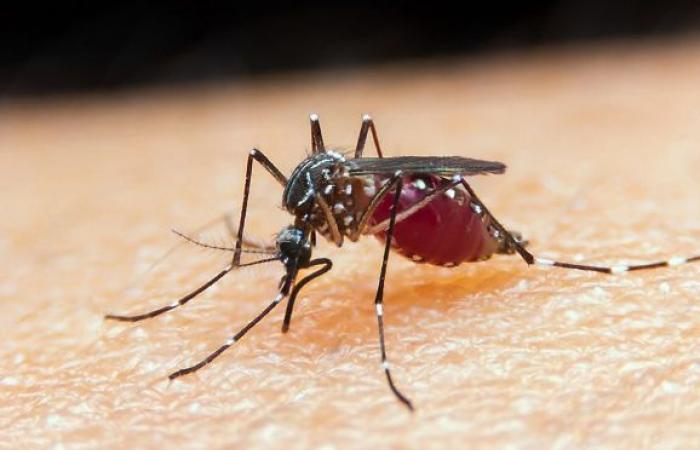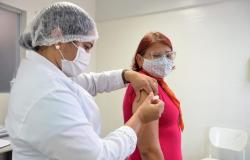The Ministry of Health has already trained 230 professionals to administer the drug tafenoquine in the Yanomami Special Indigenous Health District (DSEI). The territory was the first in the country to receive the technology, with an initial shipment of 4,000 malaria treatment regimens and has already been used on 21 patients.
The new medicine is one of the most substantial advances in recent years in combating the disease. The big advantage is that, while the older medication needs to be administered over 14 days, tafenoquine must be taken once, helping to reduce the chances of relapse. The treatment increases patient adherence and is Brazil’s new ally in the quest to eliminate malaria.
“Tafenoquine will help us a lot. It means greater efficiency in treatment, with less abandonment. After the third day it is very difficult for the indigenous people to take the medicine. They stop and are not fully cured”, explains health doctor Oneron de Abreu Pithan, who works in malaria control at DSEI Yanomami.
The forecast is that malaria cases in the Indigenous Land (TI) will begin to fall from the second half of this year. The expectation is for coordination to combat the disease that operates in the region. The reduction will be possible after a series of investments by the Ministry of Health in increasing the supply of treatment, actively searching for cases and combating transmission.
According to Oneron, the number of cases registered in 2023 was a reflection of the increase in diagnosis. According to him, there was an underreporting of 5 thousand cases between 2019 and 2022. “Malaria is an infectious parasitic disease. The presence of an infected man infects the mosquito, which infects other people. There were no contaminated vectors like there are now,” he highlights.
The doctor is categorical: the presence of miners had a severe impact on the spread of the disease. Furthermore, failures in control between 2019 and 2022 harmed the situation. During this period, cases were only reported when the patient was in serious condition and had already transmitted the disease in their environment.
“It was a very strong health impact. There were regions that three years ago were without any type of control or assistance. In these first moments, the expectation is that more cases will be reported, but the tendency is for transmission levels to improve from the second half of the year onwards”, he observes and adds: “during this period the gap was very large, mining was allowed to enter. . Mining occupied the space that the State should occupy”.
The Yanomami territory has the highest demand for malaria in the country. According to statistics from the Ministry of Health, 54% of indigenous malaria comes from the region and 75% of the most serious cases occur among the Yanomami people.
Working with the state government
In Roraima, five municipalities, which have a Yanomami presence, concentrate malaria cases. The situation is critical in Amajari, Alto Alegre, Iracema, Caracarai and Mucajaí.
The work of the Ministry of Health, through the DSEI Yanomami and the DSEI Leste Roraima, which serves seven populations, in conjunction with the state government, has allowed the structuring of work that will reduce cases of the disease.
Gerson Castro, responsible for the state government for combating malaria in Roraima, highlights that there has been a restructuring in disease control and that this has allowed for greater interaction between public agents.
“The technical part is very good. What was missing before 2023 was support from the federal government for things to happen within Yanomami territory. The coalition of forces for the work to take place within the territory was essential for our advancement”, he argues.
Gerson recalls that before 2023 there were no reports of malaria in the region. “Now, professionals are working within the territory. It’s not that the number of cases has increased, but it’s the teams doing their work in the territory”, he ponders and adds: “we have improved the integration of primary care and the DSEIs. Before, we had a lot of difficulty. We are moving in a progressive direction, there has been a rapprochement”, he concludes.
Healthy Brazil
Brazil was the first country in the world to launch a government policy to eliminate or reduce, as public health problems, 14 diseases and infections that affect, more intensely, populations in situations of greater social vulnerability. This is the proposal of Brasil Saudável, a federal government program. With the initiative, the country establishes an international framework, aligned with the WHO, the global goals established by the United Nations (UN) through the Sustainable Development Goals (SDGs) of the 2030 Agenda and the initiative of the Pan American Health Organization (Opas) for the elimination of diseases in the Americas.
The goal is for the majority of diseases to be eliminated as a public health problem: malaria, Chagas disease, trachoma, lymphatic filariasis, schistosomiasis, onchocerciasis, geohelminthiasis, in addition to five vertically transmitted infections (syphilis, hepatitis B, Chagas, HIV and HTLV). Also meeting WHO targets for diagnosis, treatment and reduction of transmission of tuberculosis, leprosy, viral hepatitis and HIV/AIDS.
Healthy Brazil emerged from the creation of the Interministerial Committee for the Elimination of Tuberculosis and Other Socially Determined Diseases (CIEDDS), an unprecedented action that, since its establishment in April 2023, reinforces the Brazilian government’s commitment to ending diseases and infections determined and perpetuated by cycles of poverty, hunger and social inequalities in the country.
The installation of these measures is part of the premise that guaranteeing access to health treatment alone is not enough to achieve these goals. It is necessary to propose intersectoral public policies that are aimed at health equity and reducing inequities, a factor directly linked to the causes of the problem.
Otávio Augusto | Ministry of Health
Tags: Health qualifies professionals administer innovative malaria treatment
--





